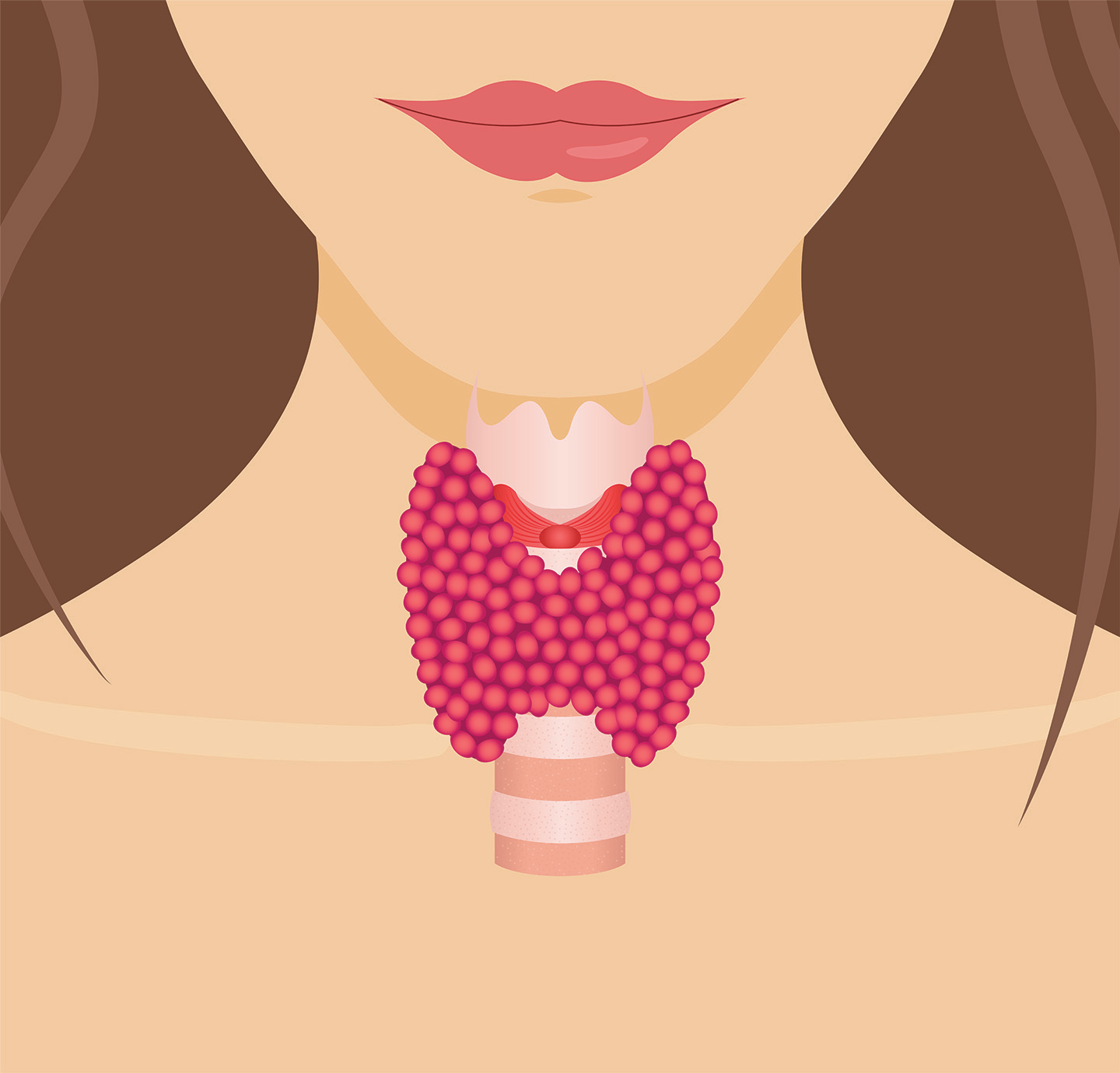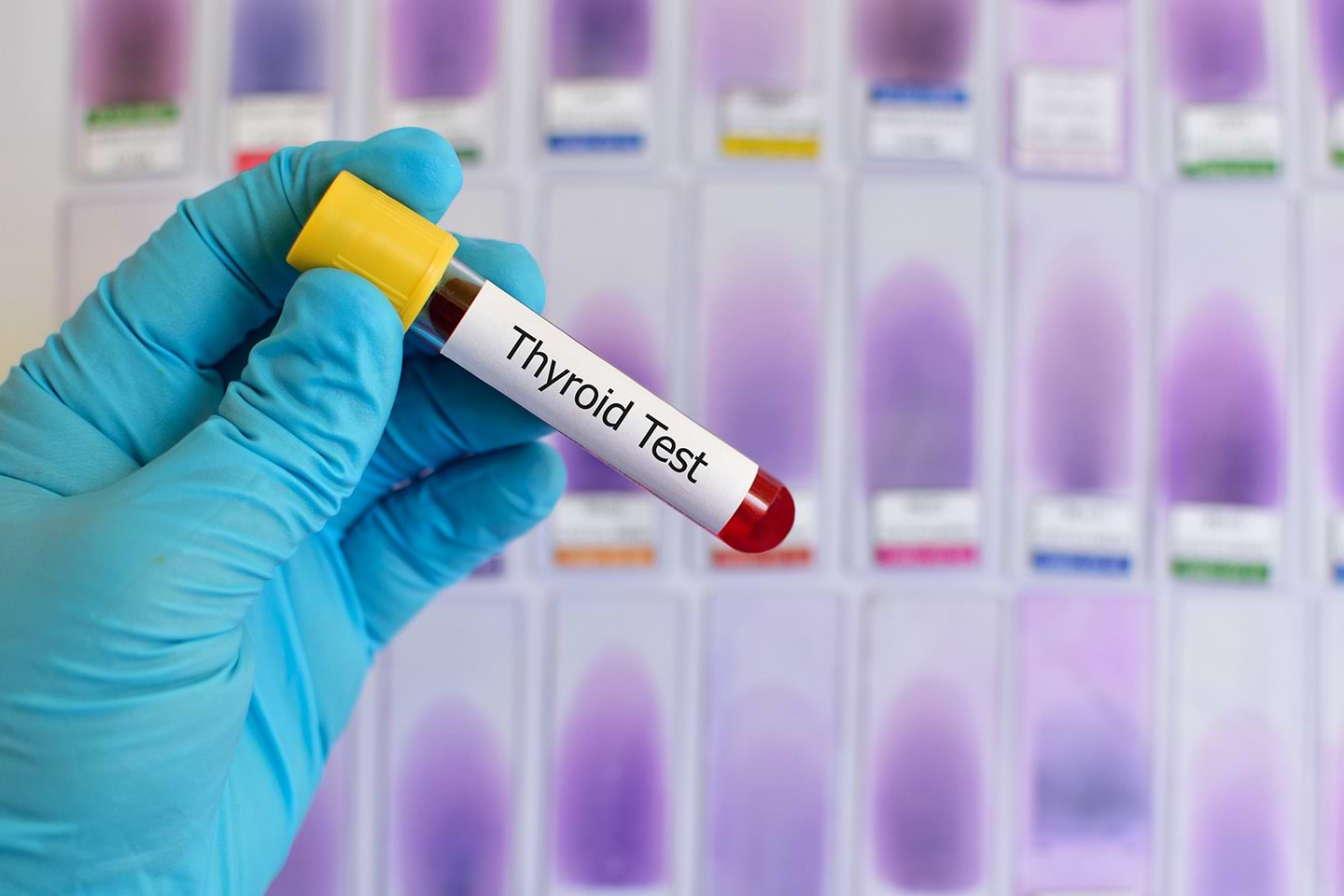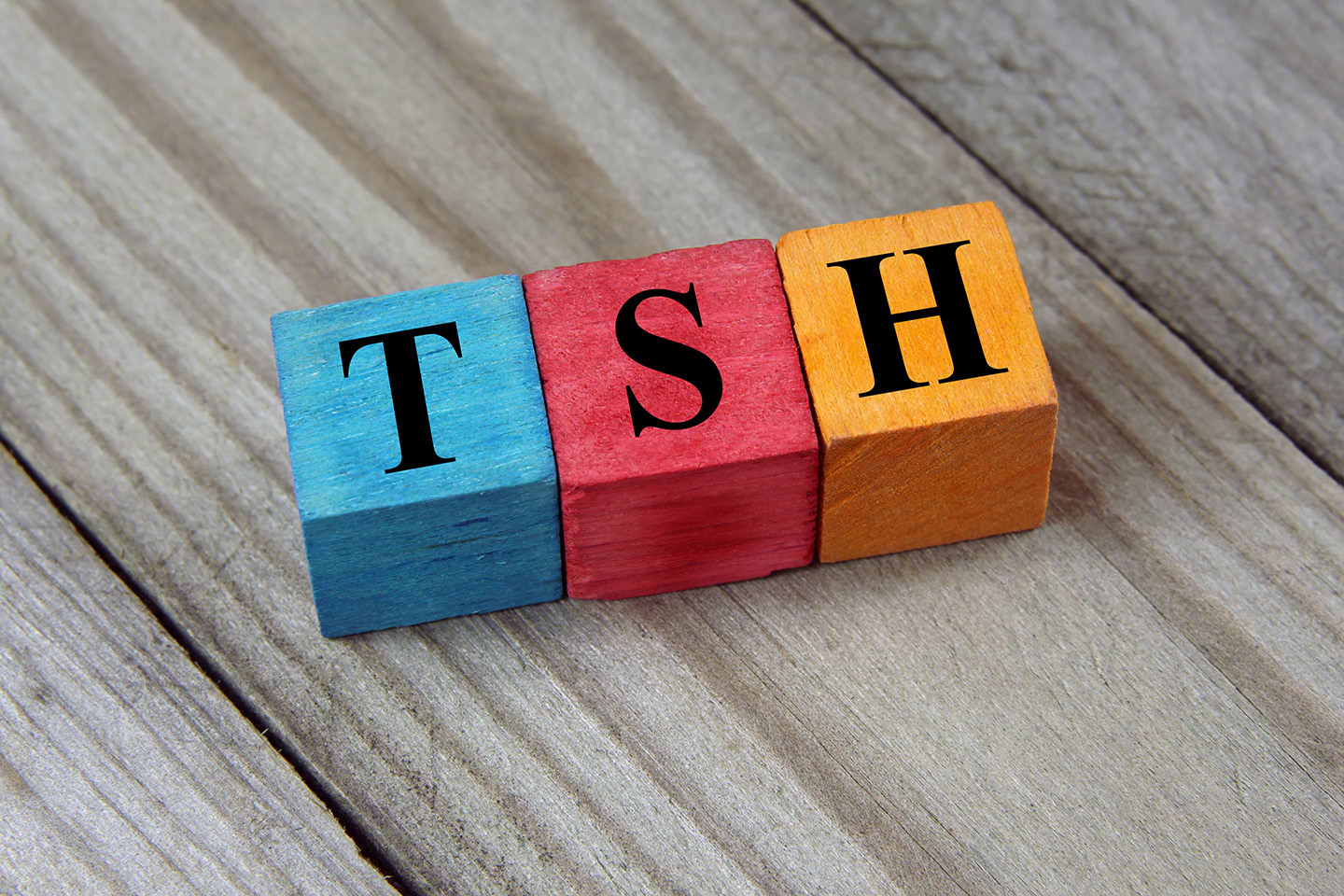Welcome to thoughtful, organic beauty
Hello Joyous is an organic, plant-based, sustainable beauty brand here to bring more joy to your day.
The thyroid gland is a small, but absolutely essential gland located in the lower portion of the front of the neck. The main functions of the thyroid gland are to regulate metabolism, and in younger persons, growth of bones and sexual development.
Thyroid dysfunction can occur in two ways: over-activity of the thyroid gland, and, more commonly, under-activity. This dysfunction is defined by levels of thyroid hormones under laboratory examination, meaning that a person may be diagnosed with thyroid illness without necessarily experiencing thyroid-associated symptoms.

Over-activity of the thyroid gland, or hyper thyroidism, is relatively rare, affecting approximately 1-2% of persons according to laboratory results (with fewer than that actually experiencing symptoms).
Under-activity of the thyroid gland, or hypo thyroidism, is more common, affecting approximately 10% of persons older than 65 years, women more often than men, again, with fewer than that actually experiencing symptoms.
Hyperthyroidism
The symptoms of hyperthyroidism are caused by anything that results in the thyroid gland producing excessive amounts of thyroid hormones (referred to as T-3 and T-4), most commonly
As mentioned above, a person may have abnormal levels of thyroid hormone detected by laboratory testing without experiencing thyroid illness symptoms. Symptoms that a person with hyperthyroidism may experience can be conceived of as “speeding up” of body functions and may include
Hypothyroidism
Hypothyroidism symptoms are caused by either under-production of thyroid hormones, or compromised availability of thyroid hormones that have been produced, by
Symptoms of hypothyroidism are a “slowing down” of function, and may include

Assessment of Thyroid Health
Usually, a problem with thyroid gland will be identified when person has some of the symptoms listed above, and their physician orders blood testing to determine thyroid-stimulating hormone (TSH) levels.
Thyroid function responds to a “feedback loop,” not unlike a house thermostat. If the blood has high levels of thyroid hormones, TSH will be “turned down” (because the thyroid gland does not require “stimulating”); therefore, low TSH levels indicate hyperthyroidism. High levels of TSH suggest increased attempts at “thyroid stimulating,” indicating low thyroid activity, hypothyroidism.
(With regard to fertility, the conventionally accepted “normal” range for TSH is quite wide, and women planning to become pregnant should have “optimal” thyroid function, reflected by TSH values of lower than 2.5 mIU/L to minimize risk of miscarriage). T-4 (T-3 often remains at normal levels until much later) is then measured to confirm that thyroid function is increased or decreased.
Other testing, including tests for antibodies that may be damaging or stimulating the thyroid gland or hormones are used to identify causes of compromised thyroid function (e.g., measurement of antibody levels to confirm an immune system cause for compromised thyroid function, such as Hashimoto’s thyroiditis).
Practical Assessment Thyroid Function
Sometimes, a person experiencing symptoms of thyroid dysfunction will have “normal” laboratory values for thyroid hormones (perhaps because of the wide “normal” TSH-range). In these cases, a naturopathic doctor may suggest measuring your basal body temperature (BBT).
Measuring your BBT involves measuring your body temperature immediately on waking over a period of at least three days. If the average body temperature is higher than 37 °C, hyperthyroidism may be present, and if less than 36.4 °C, hypothyroidism is suggested.

Natural Treatment of Hyperthyroidism
Conventional treatment of thyroid over-activity includes use of radioactive iodine or surgery, both of which are used to reduce the mass/volume of the thyroid gland, but which may result in thyroid under-activity (which will itself require treatment).
Treating hyperthyroidism using natural medicines can be complicated, but the starting point, specifically in immune system and inflammation-related conditions, is to remove triggers of immune activity and inflammation in the diet using IgG antibody testing to identify potential trigger foods. Research also supports using meditation to reduce inflammation.
Once excessive immune system activity and inflammation is under control, herbal medicines can be used to further reduce inflammation, “re-balance” immune system activity to reduce the likelihood of immune system “flare-ups”, and reduce thyroid hormone production.
Natural Treatment of Hypothyroidism
Conventional treatment of hypothyroidism usually includes the synthetic thyroid hormone, levothyroxine.
Naturopathic treatment of thyroid under-activity, if caused by immune system “attack” on thyroid gland or hormones, begins with identifying and eliminating dietary triggers of autoimmune activity and inflammation, possibly with further support of a meditation practice. Herbal medicines can be used to further manage inflammation and immune system dysfunction, and also to stimulate thyroid hormone production. A final, important consideration in treating hypothyroidism naturally may be supplementation with iodine, providing an essential “building block” of thyroid hormones.
Poor thyroid function responds well to natural treatment, particularly when preparing for pregnancy, or when combined with conventional approaches as a means of minimizing or avoiding side effects of conventional therapies.
If you suspect you may have thyroid dysfunction, or are planning to become pregnant, it is important to get a professional assessment, as untreated, compromised thyroid health can have serious consequences, ranging from deceased quality of life to vision loss or even death.
After reading this article, while it gives a good overview of the thyroid and its impact, I am still left wondering what specific holistic remedies are there? Herbal medicines are mentioned, however are there any specifics that can be shared?
ReplyHi Kerry. Thanks for reaching out. Because everyone is different, it can be hard (and potentially harmful) to give specific recommendations without properly taking each individuals health history and symptoms into consideration. If you suspect your thyroid is an issue, we highly recommend seeking the care of a health care professional who can look at your specific needs and offer a customized and, and most importantly, a safe treatment plan for you. I hope that helps! Heather- Joyous Health Team
This was the most helpful explanation of thyroid function that I have read. I am a 23 year old female and when I was 20 I had my thyroid removed because it was cancerous. I am currently taking Levothryoxine. Seeing all the symptoms laid out was so helpful and made me understand that I am currently experiencing hyperthyroidism. Helpful to know the signs and symptoms of each so I can understand my body in a more comprehensive way and know what balanced feels like. Trying to level out with a good diet and regular sleep. Thanks.
ReplySo glad you found this helpful, Midori! Thanks for sharing. Wishing you all the best :) Heather- Joyous Health Team
I just wanted to make sure the statistics listed were correct and there is no typo. It's mentioned in this article that hypothyroidism effects 10% of people over 65 years of age. What about everybody else? It seems much more prevalent than that. Almost everyone I know suffers from some symptoms of low thyroid issues. Especially after pregnancy. Myself included.
ReplyHi Julie. Thanks for reaching out! The statistics mentioned are correct but overall rates of hypothyroidism are closer to 1 to 2% of the population at large. There are many reasons the statistics may not reflect what you have experienced amongst your social circle. This would include misdiagnosis (traditional tests may show that thyroid hormone levels are 'normal' but not optimal enough for people to feel well), undiagnosed cases, overlapping symptoms with conditions like adrenal fatigue and also the temporary “peak” period, which is in women who have given birth. Approximately 10% of women will develop a temporary hypothyroidism about 4 to 12 months after giving birth. So as you can imagine, statistics don't represent the whole story. I hope that helps! Heather- Joyous Health Team
I have read that almonds should be had only on small amounts. With so many baked goods using g almond flour I am hesitant on switching to almond butter too. Almond butter is expensive and I have tried to mix wi th organic peanut butter but almond butter is thicker and does not spread as easily. Any tips ?
ReplyI'm wondering if Thyroid condition is hereditary. My mother had hers removed and 3 of my 5 sisters have it, (2 Hashimoto's) and I too have Hashimoto's. What gets me is the doctor that treated me several years ago tried using all the levotyroxines out there and nothing could balance my levels until we finally used Tirosint. It's a gel based levothyroxine and expensive at that. It wasn't until almost 7 or 8 years later though that I am seeing a new doctor (since I moved) who I like and is more progressive that told me I had Hashimoto's and shouldn't be eating Gluten, sugar, or dairy. I eat a good healthy diet, but maybe that's why I haven't been feeling as good as I used to as I've been getting older..I'm now 61. I'm disappointed in the poor communication with my previous health care providers. I'm looking forward to new recipes and a lifestyle change but I don't find it easy to find products as I love to cook everything homemade.
ReplyI have been dealing with hypothyroidism for the past 15 to 20 years. Symptoms include excessive weight gain, low energy, nonexistent libido, brittle nails, dry skin, tired all the time, anemia, insomnia, aches and pains, and depression. Instead of being cold, I am always hot. Sometimes I can't sleep because my feet are so hot so I have to go stand in a snow bank or cold water in the tub. I have tried watching what I eat and do lots of exercise, but really struggle to lose weight. In the past 4 years my TSH has been anywhere between .05 and 14.32. Ferritin runs between 46 and 86. I was desperate for help to help me feel better. i was introduced to Health herbal clinic in Johannesburg who have successful herbal treatment to hypothyroidism . I spoke to few people who used the treatment here in USA and they all gave a positive response, so i immediately purchased the hypothyroidism herbal formula and commenced usage, i used the herbal supplement for only 7 weeks, all symptoms gradually faded away, herbs are truly gift from God. contact this herbal clinic via their email healthherbalclinic (at) gmail (dot) com or visit www (dot) healthherbalclinic (dot) weebly (dot) com
ReplyI have been dealing with hypothyroidism for the past 15 to 20 years. Symptoms include excessive weight gain, low energy, nonexistent libido, brittle nails, dry skin, tired all the time, anemia, insomnia, aches and pains, and depression. Instead of being cold, I am always hot. Sometimes I can't sleep because my feet are so hot so I have to go stand in a snow bank or cold water in the tub. I have tried watching what I eat and do lots of exercise, but really struggle to lose weight. In the past 4 years my TSH has been anywhere between .05 and 14.32. Ferritin runs between 46 and 86. I was desperate for help to help me feel better. i was introduced to Health herbal clinic in Johannesburg who have successful herbal treatment to hypothyroidism . I spoke to few people who used the treatment here in USA and they all gave a positive response, so i immediately purchased the hypothyroidism herbal formula and commenced usage, i used the herbal supplement for only 7 weeks, all symptoms gradually faded away, herbs are truly gift from God. contact this herbal clinic via their email healthherbalclinic @ gmail. com or visit www. healthherbalclinic. weebly. com
Reply